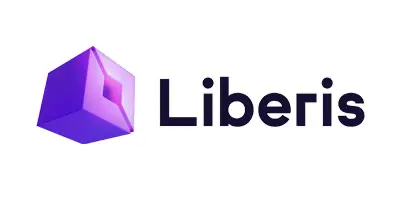What is a merchant cash advance?
A merchant cash advance is a line of funding raised against a businesses monthly credit and debit card sales. It is repaid as the business makes sales on future card transactions they make with their customers.
How much can be advanced with a Merchant Cash Advance?
You can expect to borrow a similar amount to the value of your monthly credit and debit card turnover. In some cases, you could receive an advance of up to 150% or more. Depending on some of the risk factors that are common in the underwriting process.
Typically lenders will advance from £2500 to £300,000 conditionally linked to turnover.
The product is also unsecured which means that you don’t have to secure a personal or business asset such as a property against the cash advanced.

It is classed as alternative finance?
Often regarded as a ‘disruptive financial sector,’ alternative commercial funding offers a range of business lending solutions across differing products.
A merchant cash advance classed as an alternative finance solution to that of traditional banking products is growing year on year.
It is now mainstream for many businesses especially those who take payments with their customers via merchant technology such as PDQ terminals.
This product falls into the alternative finance bracket along with other forms of finance such as peer-to-peer and crowdfunding products.
How does the product work with cash flow?
Unlike other forms of traditional business lending where a company repays a set amount each month to repay a loan, a ‘MCA’ repays as and when you make sales.
So, if your business has a slow month on sales due to seasonality or just general poor sales, you are only expected to pay back in line with those sales.
A unique selling point of a merchant cash advance is how flexible the repayment schedule is. It is a popular choice for businesses with seasonality fluctuations or peaks and troughs on their sales figures.
You pay back a percentage of future card sales
The percentage repayment of each sale is agreed with the lender before the advance is agreed.
Typically you should expect a range of between 10% and 18% of each sale to repay when you make a sale.
This percentage is discussed with the lender when formulating the quotation as the percentage needs to be both comfortable for both parties.
Discuss this rate with the lender to make sure your business can afford the repayable proportion.
What is a typical repayable amount?
Each lender has different lending criteria and can offer favorable repayment figures to remain competitive.
For example
A business takes £5000 on credit card transactions per month and requires £5000 in funding. The lender applies a factor rate of 1.23 and offers them £5000 with a total repayable amount of £5000 x 1.23 = £6,150. The business agrees to repay 10% of each future card sale to repay the whole amount.

Factor Rates explained
Each lender has different lending criteria and can offer favorable repayment figures to remain competitive.
For example
Lenders use a factor rate to determine the total repayable amount. A factor rate is not like an APR commonly used across other forms of commercial lending. Each lender may equate a different factor rate based on the risk they associate to the funding requirement.
A restaurant takes £50,000 on card transactions and requires £30,000 in business funding. The first step is to multiply the factor rate by the amount of borrowing.
The lender applies a factor rate of 1.25 (1.25 x £30,000 = £37,500). In this example, the interest cost of the advance is 25%, but the key difference with a factor rate and a traditional APR is that all of the interest is charged to the principal when the advance is originated.
There are a few variables which are used to calculate factor rates used at the discretion of the lender.
The lender will want to see that you have a solid history of substantial credit card sales.
They will usually ask for your last three months credit card statements. The lender may want to verify the financial strength of your business.
They may require business bank statements from the past three months too. Most of the MCA companies require at least six months in business before they consider your application.
Some lenders require less than six months in business.
Are there any other fees applicable to the service?
Generally, across most lenders, there are no other charges, fees or late payment penalties associated. It is good practice to check with the funder or broker and make sure that they don’t have any other additional costs connected with their services.
What is usually required to complete an application?
Usually, a simple online form, three months merchant statements and a small amount of admin on the lender side is all that is required.
How quickly does it take from start to finish?
Across most lenders, from the application process to drawn down funds can take an average of around 2-3 days.
Is the MCA industry regulated?
The Merchant Cash Advance sector is currently unregulated. The British Merchant Cash Advance Association (BMCAA) offers business owners access and information into the MCA group of lenders.
The MCA product currently does not fall under the scope of the Financial Conduct Authority (FCA), but it is in our interests to promote fairness and transparency throughout the process to benefit the end user.
MCA Lenders observe and practice professional standards of transparency, and you will expect clear communications with a no obligation, upfront pricing quotation’s as standard.
How can a merchant cash advance be used?
It can be applied to any purpose, whether your business needs a little cash flow help or you were looking to buy or refurbish premises, buy more stock, pay off tax bills, buy assets or equipment vital for your business.
Who uses the product?
Any business that uses a credit or debit card system otherwise known as a PDQ merchant payment system can use the product. We see the hospitality sector such as restaurants and hotels using the product.
Retail businesses such as small high street shops who also take face to face payments with their customers.
While high street retailers and hospitality companies use the product more extensively, we see growth in online retailers and e-commerce websites using the services too.
Does a business have a requirement to switch card payment providers?
Most funders don’t require you to change merchants to use their services. As more and more merchant payment providers arrive, they are integrated with the lenders so that there is no disruption to your payment services.
The British Business Bank provides funding via a lender
The British Business Bank Investments which is a government initiative has supplied the sector with capital via a lender, Liberis Finance who help fund small businesses and SME’s in the UK.

Since the 1st of November 2016, the major banks have been obliged to refer any declined customers to alternative forms of business funding solutions via online platforms. Such platforms have a range of partners who may be able to offer the finance required for companies looking to expand and grow.
When to use a broker service
When applying for the best deal in the market, it is advantageous to seek comparative quotes from lenders. By engaging with a cash advance brokerage firm, you should receive the best deal for your business.
Many brokerages don’t charge a fee and are paid a commission by the lender on the drawdown of funds. A good tip is to check with the brokerage that they don’t charge a fee for their service.
Some specify this on their website.
MCA’s and credit building
This type of funding does not build commercial credit because cash advance providers do not report to business credit reporting agencies.